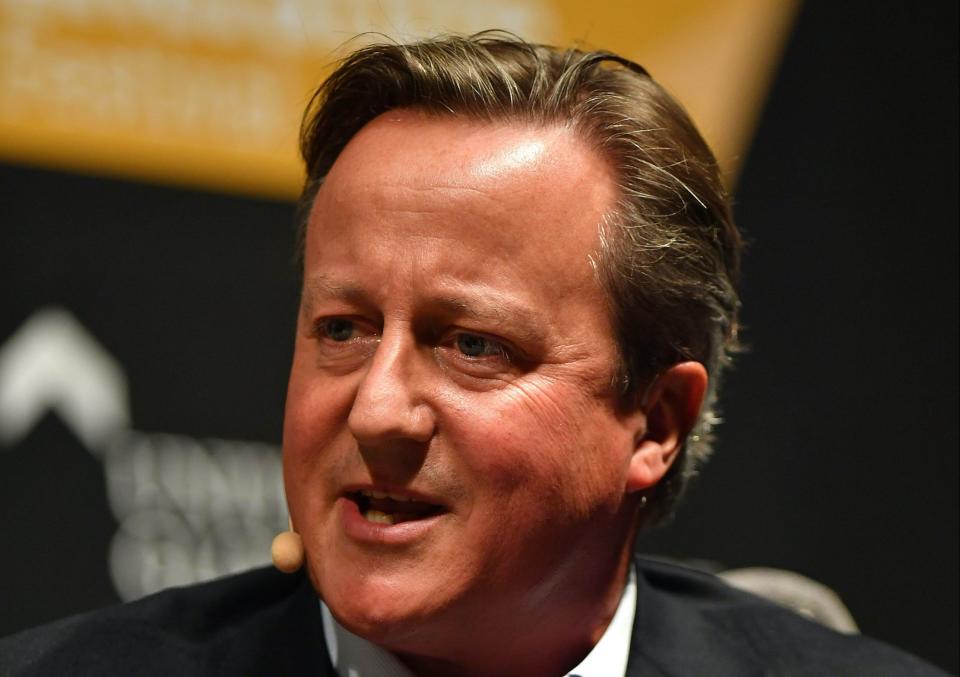David Cameron and Lex Greensill repeatedly lobbied Bank of England, messages reveal

David Cameron and Lex Greensill repeatedly lobbied the Bank of England for support for finance company Greensill Capital, messages released by the Bank have revealed.
The Bank today released a series of emails and letters from the former prime minister, some of which showed senior officials at Threadneedle Street agreeing to phone calls with Cameron and Greensill.
It came as the first parliamentary inquiry into Greensill lobbying of the government opened with a warning from the chair of the Commons Public Accounts Committee, Meg Hillier, of the dangers of “government by WhatsApp”.
The Treasury’s most senior civil servant, Sir Tom Scholar, told the committee that Greensill had “persistently” lobbied his officials, and that he had personally spoken with Cameron by phone, saying it was “quite natural” that he should take a call from a man who he worked for during his time at Downing Street.
Now the Bank of England release, in response to a Freedom of Information request, has confirmed that Cameron, who was employed as a senior adviser to Greensill at the time, had also persistently lobbied Threadneedle Street.
The messages show that Mr Cameron emailed the Bank’s deputy governor Sir Jon Cunliffe on 5 March 2020, to set up a call to discuss the help Greensill could offer in modernising the government’s supply chain finance.
A letter later that day from then governor Mark Carney’s private secretary proposed that the company speak to officials.
On 17 March Mr Greensill and Mr Cameron held a call with Bank officials to explain Greensill Capital’s supply chain finance operation.
The minutes of the call note that Greensill Capital “explained that they were coming under significant pressure in current market conditions” and called for a re-establishment of the secured commercial paper facility scheme used in the 2009 financial crisis to “ease market conditions and protect the supply of working capital to the real economy”.
On 17 March, the Bank announced the Covid Corporate Finance Facility to support large companies hit by the Covid-19 pandemic, prompting a request from Greensill for inclusion in the scheme.
After they were rejected, Mr Cameron and Greensill continued to lobby the Treasury and the Bank in the hope of securing amendments to the scheme to allow the company to benefit.
Mr Cameron contacted Cunliffe on 3 April asking for clarity on why the Greensill proposals did not qualify, and again on 22 April when he asked for another call involving Mr Greensill.
Signing himself “Dc”, the former prime minister said the Treasury seemed “hung up” on the fact that the CCFF was designed for non-financial corporates, insisting that this was “irrelevant” as Greenshill wanted to pass on loans to small and medium-sized enterprises (SMEs)
“At a time when we are - rightly - worried about how quickly banks can get loans out to small businesses, why are we potentially cutting off a market that already pumps cheap credit directly into SMEs?” he asked the deputy governor on 3 April.
“I think I must be missing something here. Am obviously talking to HMT, but would be grateful for any light you could shed on this.”
On 22 April, he told Cunliffe he still had not got the green light from the Treasury, describing the situation as “incredibly frustrating”.
In an apparent sign of the company’s increasing desperation, Mr Cameron said that the company’s capacity “remains severely constrained as many fixed income investors - who historically provide meaningful capacity - are currently remaining on the sidelines”.
A Bank memo on 24 April recorded that Mr Greensill spoke by phone with Sir Jon that morning, noting: “Most of the call was Lex explaining their business model. Jon was clear that Greensill would currently fall outside the boundaries of the scheme, and that expanding the parameters was a decision for HMT.”
Greensill’s attempts to secure state Covid support ultimately came to nothing and the company has since gone into administration.
Shadow chancellor Anneliese Dodds said the emails “confirm that Greensill wasn’t shy about the financial trouble it was in last year”.
She said: “They were sending the begging bowl round to the Bank for England for up to £20 billion in support in March, and yet the government granted the failed lending firm access to hundreds of millions of pounds of taxpayer-backed loans in June.
“This is about keeping public money safe. We need to understand why Greensill Capital was given so much time and access to the Treasury, and why so much public money was put at risk.
“The chancellor must now come clean about his role in the return of Conservative sleaze by urgently publishing details of every call, text and secret meeting he had with David Cameron’s Greensill Capital.”
Read More
Tom Scholar tells committee that David Cameron lobbied him over Greensill
David Cameron lobbied Treasury’s top civil servant on behalf of Greensill
Treasury dossier reveals new details of David Cameron pleas for support for ailing Greensill

 Yahoo Finance
Yahoo Finance 